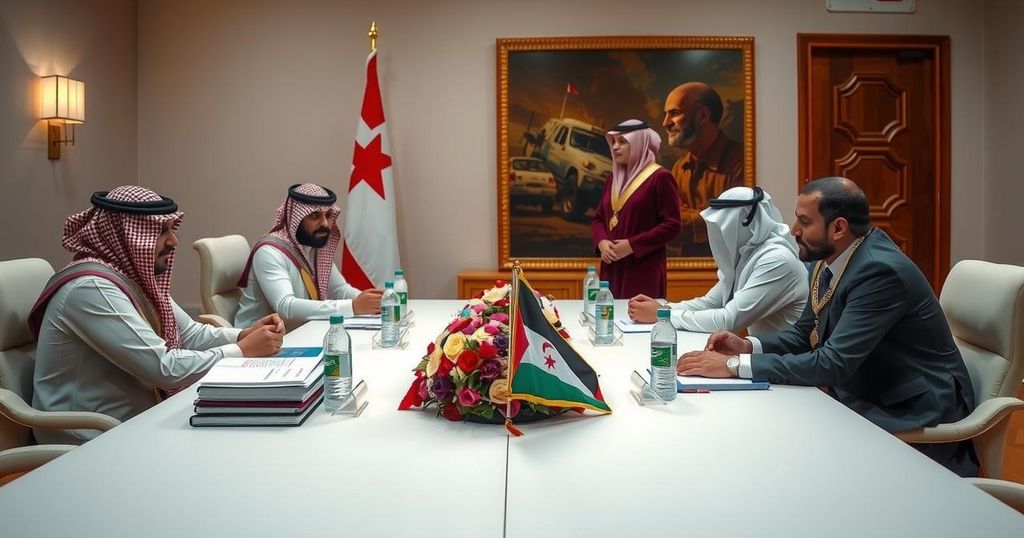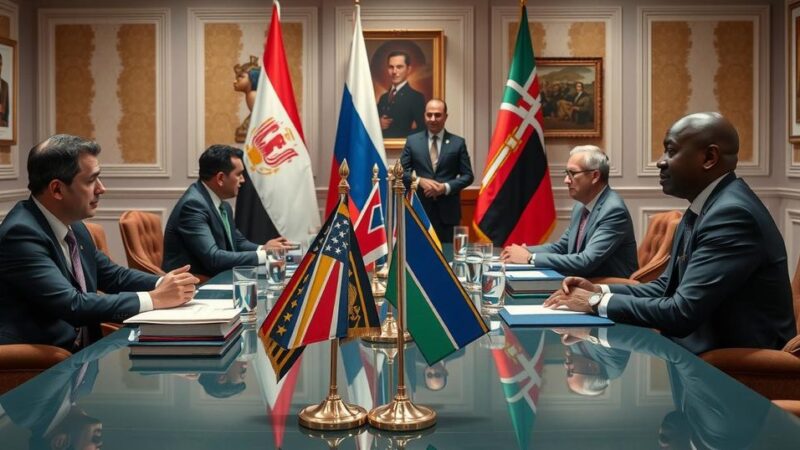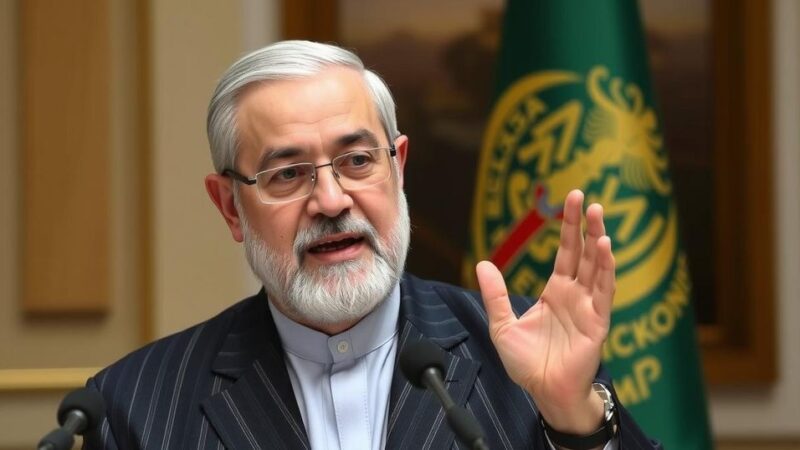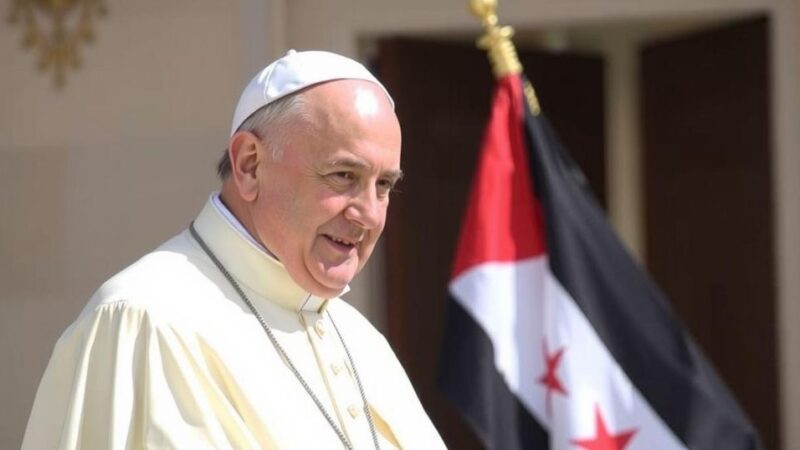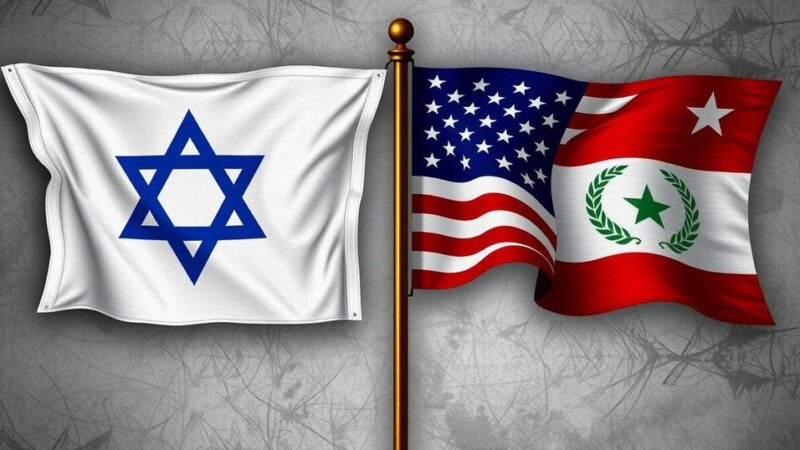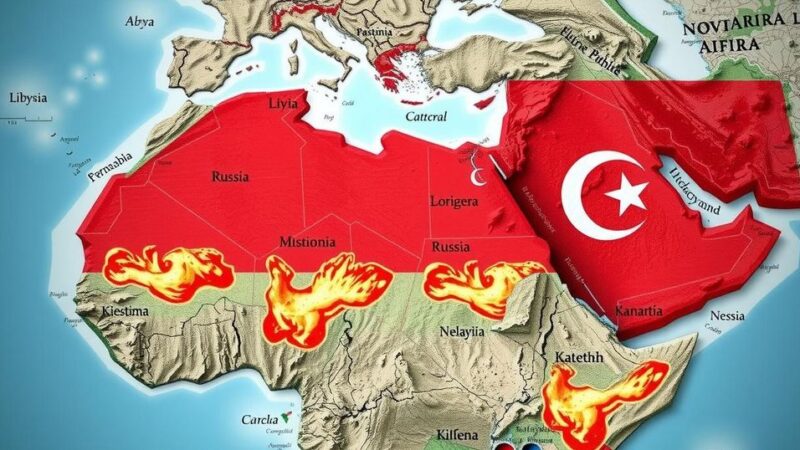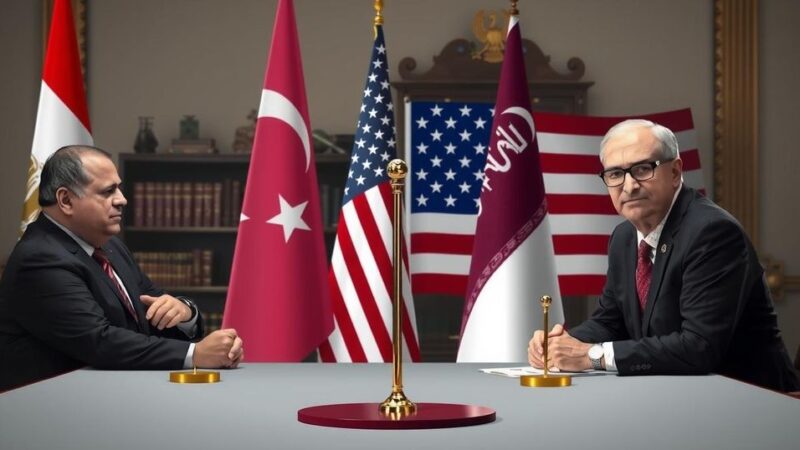Ceasefire negotiations between Israel and Hamas are advancing, but no agreement has been finalized. Multiple obstacles remain, including key issues related to hostages and the nature of the ceasefire. Protests against Israel’s actions reflect rising tensions in Europe, while diplomatic relations in the Middle East may be shifting with the reopening of the UAE Embassy in Lebanon.
As of the latest updates, negotiations between Israel and Hamas regarding a phased ceasefire appear to be progressing, although a definitive agreement remains elusive. The conflict, which has persisted for over 15 months since the invasion by Hamas militants on October 7, 2023, has resulted in significant loss of life on both sides, with mounting tensions complicating diplomatic efforts. Despite ongoing mediation efforts led by the United States, Qatar, and Egypt, key issues surrounding the ceasefire and the fate of hostages are proving to be substantial obstacles.
In recent developments, a protester disrupted a campaign event for German Chancellor Olaf Scholz, visibly opposing Israel’s military actions in Gaza. The protest highlights the increasing scrutiny Germany faces regarding its support for Israel, amid rising tensions in the region. Scholz reiterated Germany’s position, emphasizing Israel’s right to defend itself against attacks
Furthermore, negotiations continue with complexity surrounding the details of potential hostages’ release and the possibility of a permanent ceasefire. Sources indicate that while progress has been made, significant hurdles remain, with previous near-agreements faltering at critical moments. International mediators are viewing the coming days as crucial for bringing an end to this prolonged conflict.
Additionally, a high-level delegation from the UAE is in Lebanon, preparing to reopen its embassy following a prolonged diplomatic freeze that was instigated by tensions over Yemen. This development comes after Lebanon appointed a new president, which could signal a warming of relations between Lebanon and Gulf Arab nations, historically strained by Iran’s influence in the region.
The ongoing conflict between Israel and Hamas has significantly disrupted stability in the Middle East. Initiated by a surprise attack from Hamas, the warfare has drawn in international observers and meditors attempting to foster peace. The humanitarian situation has reached critical levels, prompting global scrutiny and protests against the actions of Israel and Hamas alike. Negotiation efforts by leading nations illustrate the urgency of reaching a ceasefire amidst widespread casualties and political complexities. Germany’s political landscape is also impacted by the Israel-Hamas conflict, with public opposition rising against government positions that support Israel, thereby influencing the contemporary political dialogue. The reopening of the UAE Embassy in Lebanon indicates a potential thawing of relations, aimed at restoring diplomatic interactions in a historically complicated region.
In conclusion, the ongoing negotiations between Israel and Hamas highlight the precarious nature of Middle Eastern diplomacy as it grapples with the aftermath of conflict. While phases of progress in ceasefire talks signal hope, significant hurdles persist, requiring sustained international negotiation efforts. Concurrently, the political dynamics in Europe and the Middle East continue to evolve, with potential impacts on regional stability. Continued attention to these developments is essential as the international community seeks pathways to peace.
Original Source: www.thecanadianpressnews.ca

